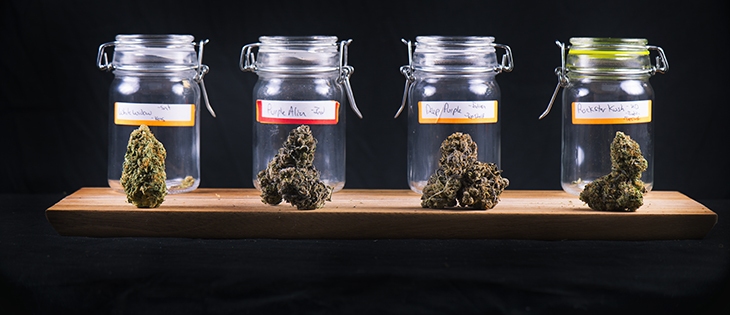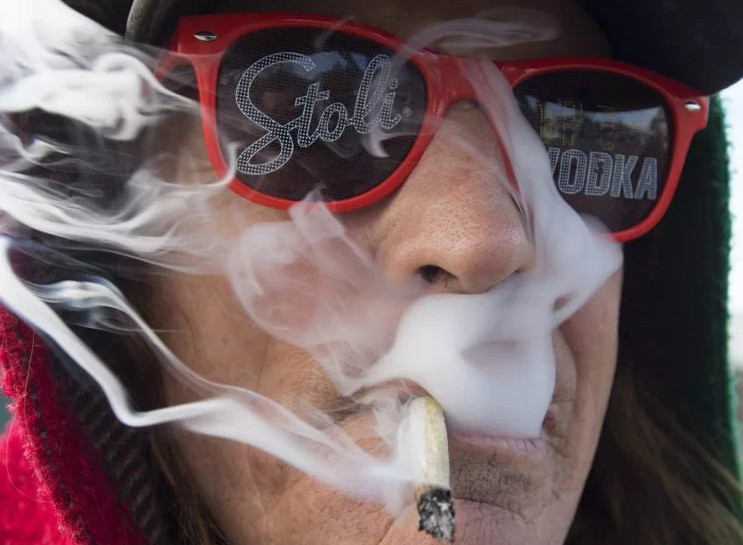LITTLETON, Colorado — Mayor Debbie Brinkman has heard “the pitch” more times than she can count.Sometimes, it’s told to her secondhand by mayors in other states caught up in the marijuana legalization debate — among them New Jersey, Massachusetts and Pennsylvania.
Usually, she hears the pitch at city council meetings, when the parking lot that’s normally full of Jeeps and Hyundais suddenly becomes a showcase for the Audis and BMWs driven by cannabis industry executives. They lecture Brinkman on how the city could build new schools and pave new roads with revenue from marijuana dispensaries selling legal weed
Brinkman has rebuffed them every time.
“Personally, I’m a ‘hell no’ against it,” she said. “Politically, I have not heard from enough people in my community that want it. I hear from people who don’t. I hear from people who say, ‘thank you for keeping it out.’”
If Brinkman’s rhetoric sounds like déjà vu, it’s because officials in New Jersey municipalities have been echoing their Colorado counterparts with increasing frequency. The push back comes as the debate over marijuana legalization heats up, ahead of a push by Gov. Phil Murphy to sell legal weed in the Garden State.
Over the last six months, moratoriums and outright bans on marijuana sales have become almost commonplace in New Jersey. Point Pleasant Beach and Shrewsbury Borough were the first, issuing their bans last fall. More than 20 other towns — starting at the Shore and spreading throughout the state, to municipalities like Old Bridge, Hasbrouck Heights and Brigantine — quickly introduced or approved their own marijuana bans, nearly 4 percent of all municipalities in New Jersey.
Those towns would still allow people to possess legal weed and consume it at home, but there wouldn’t be any local marijuana dispensaries.
It’s a mirror image of what Colorado municipalities went through in the wake of Amendment 64, the November 2012 ballot measure that legalized marijuana for recreational purposes.
In the aftermath of the vote, about 70 percent of all cities and counties opted out of recreational marijuana sales.
But here’s the kicker: Four years later, there are 93 cities and counties with recreational marijuana dispensaries, according to the Colorado Marijuana Enforcement Division, more than double those on board in 2014.
Some leaders say it’s because they were missing out on tax revenue going to their neighbors. Others believe it’s the changing demographics, with newer, younger residents ready to vote out anyone who stands against legal weed.
Leaders like Brinkman believe the sea change is due to an over-aggressive industry advocates who “really believe everybody should be OK with this.”
“I mean, is there such a low supply that we also need to provide it?” she said. “The answer there is certainly no.”
Eyes wide open
Driving through Englewood, Colorado, on a sunny, weekday morning is akin to a day trip to 1950s middle America.
The city’s 34,000 people are still largely blue-collar, many still reeling from the bankruptcy of retail sporting goods giant Sports Authority, which left thousands without jobs when its headquarters closed. The median household income is $50,000 — $15,000 less than the Colorado average, and $9,000 below the national average.
There are neighborhoods with grid-aligned streets full of small ranch houses and lawns just starting to turn bright green after the snowy Colorado winter. South Broadway, the city’s main street area, has the quirky, mom-and-pop storefronts and restaurants seemingly out of a Norman Rockwell painting.
And then there’s Nature’s Kiss, one of the city’s three marijuana dispensaries, with bright orange and green letters painted on its storefront window: “Now selling recreational! Four joints for $25! All 1/4ths, $50!”

Credit: app.com
He also wanted a more stringent background check of dispensary applicants. And the ballot initiative capped total fees at $1,000 per applicant, barely enough to pay for the equipment and new hires necessary to regulate the businesses.
Instead of building new schools and paving new roads, Englewood will see a tax benefit of about $500,000, Keck said. It represents just 1 percent of the city budget.
“Expunge this fallacy that this is going to be a huge panacea for your revenue needs. Because it’s not. That’s the major misnomer that has sold a lot of states who are looking at this, or in cities where the industry is trying to promulgate legislation to allow it to happen.
“It’s not really the boon that you think it’s going to be,” he said.
The genie
And then there’s Littleton, population 41,000. It’s a slightly larger and busier suburb than Englewood — its main street a little busier, the houses a little bigger and the income a little larger. But the marijuana dispensaries only sell medicinal marijuana — and the only reason they exist was because city officials in 2000 were “asleep at the wheel,” Brinkman said.
At the time, there were already a dozen applications for medical marijuana dispensaries before anyone realized they hadn’t been directly addressed in Littleton’s zoning regulations.
“If you’re not ahead of it, you cannot put the genie back in the bottle,” Brinkman said. “But we were able to push a lot of it back, get it managed and get it under control.”
That control came from tight zoning regulations and operational requirements, as well as an ordinance championed by Brinkman, which prohibited dispensaries from various forms of public advertising.

Credit: app.com
State law already prohibits legal weed businesses, including dispensaries, from buying billboards — the most popular form of public advertising is sponsored highway cleanups. But in Littleton, the city’s four medical marijuana dispensaries were barred from using many of the commonplace advertising preferred by Colorado dispensaries.
No pot leaf. No green cross, the generic icon for medical marijuana. There’s not even the word “cannabis” or “marijuana.”
At Silver Stem Fine Cannabis, the only marker of the drugs held within is a bare-bones sign — “medical dispensary, 21+” and a small logo — and the name of the business on the front door.
The windows even seemingly call attention to Littleton’s laws, with the phrase “canna…shhh” printed on a window.
The dispensary is hidden in plain view — and that’s exactly how Brinkman likes it.
“We don’t want people to know you’re there. And it’s not because we want them to fail but it’s simply because those who are seeking that find it,” Brinkman said. “That aggressive advertising is challenging because you cannot delineate who is going to see that ad, from an impressionable middle-schooler to a 70-year-old hippie.”
Mike Davis; @byMikeDavis: 732-643-4223; mdavis@gannettnj.com
Credit: app.com












